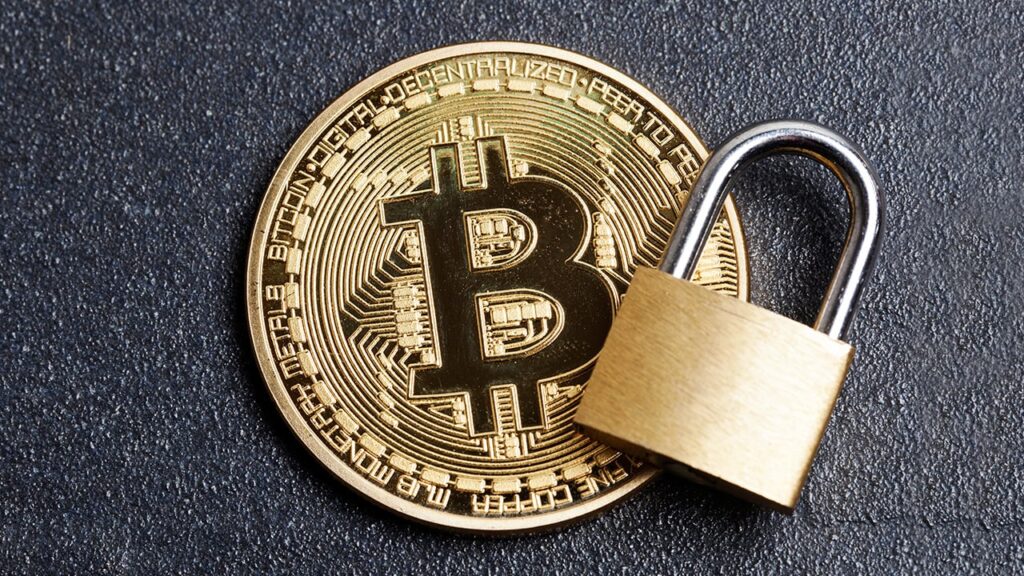How to Protect Your Bitcoin

Bitcoin represents financial freedom, a digital asset that puts control in your hands. But with great power comes great responsibility. As cyber threats and scams increase, securing your Bitcoin has never been more critical.
This guide provides actionable strategies to help you protect your Bitcoin holdings, safeguard your investments, and navigate the digital landscape with confidence.
Why Bitcoin Security Matters
Bitcoin is decentralized, meaning no bank or institution oversees your funds. While this autonomy is empowering, it also places the burden of security on the owner. If your Bitcoin is lost or stolen, recovery is nearly impossible.
Key risks include:
- Hacking: Cybercriminals target vulnerable wallets and exchanges.
- Scams: Phishing schemes and fake investment opportunities are rampant.
- Loss of Access: Forgetting your private keys can lead to permanent loss of funds.
By understanding these risks, you can take proactive steps to secure your Bitcoin.
Choosing the Right Wallet
Your wallet is the foundation of your Bitcoin security. Selecting the right type is critical to safeguarding your assets.
Hardware Wallets
Hardware wallets are physical devices that store your Bitcoin offline, making them immune to online hacking attempts. Popular options include Ledger and Trezor.
- Pros: High security, offline storage, resistant to malware.
- Cons: Costly and requires physical possession.
Software Wallets
These wallets are digital applications stored on your computer or smartphone. While convenient, they are more vulnerable to cyberattacks. Examples include Electrum and Exodus.
- Pros: Easy to use, accessible from multiple devices.
- Cons: Higher risk of hacking and malware.
Paper Wallets
A paper wallet involves printing your private and public keys on paper.
- Pros: Completely offline and immune to digital threats.
- Cons: Prone to physical damage or loss.
Securing Your Private Keys
Private keys are the backbone of Bitcoin security. If someone gains access to your private key, they control your funds.
Best Practices for Private Key Protection

- Keep Them Offline: Store private keys in a hardware wallet or on paper.
- Use Strong Passwords: Encrypt your keys with complex, unique passwords.
- Avoid Sharing: Never share your private keys with anyone, even trusted parties.
Backup Strategies
Create multiple backups of your keys and store them in secure locations, such as a safe or a trusted family member’s custody. Always test your backups to ensure they work.
Protecting Against Cyber Threats
Recognizing Phishing Scams
Phishing attempts often mimic legitimate services to steal your credentials. Look for:
- Suspicious email addresses.
- Urgent calls to action demanding immediate action.
- Fake URLs that closely resemble trusted sites.
Using Two-Factor Authentication (2FA)
Enable 2FA on all accounts related to Bitcoin transactions. This extra layer of security requires you to verify your identity through a secondary method, such as a text message or app-based code.
Securing Your Devices
- Keep your software and operating systems updated.
- Install trusted antivirus programs to protect against malware.
- Avoid public Wi-Fi networks when managing your Bitcoin.
The Importance of Trusted Exchanges
When trading or purchasing Bitcoin, only use reputable exchanges. Key considerations include:
- Regulation: Choose platforms compliant with local regulations.
- Security Measures: Look for exchanges that offer features like 2FA and cold storage.
- User Reviews: Check community feedback to gauge reliability.
Diversifying Your Bitcoin Storage
Don’t keep all your Bitcoin in one wallet or exchange. Spread your holdings across multiple storage solutions to minimize risk. This strategy ensures that even if one account is compromised, the majority of your assets remain safe.
Planning for the Unexpected

Estate Planning for Bitcoin
Make arrangements for your Bitcoin in case of unforeseen circumstances.
- Document Your Keys: Ensure trusted individuals have access to your private keys.
- Legal Assistance: Work with an attorney to include Bitcoin in your will or estate plan.
Insurance Options
Some companies now offer cryptocurrency insurance. While this is still an emerging field, it can provide peace of mind for large-scale investors.
Staying Informed
The cryptocurrency space evolves rapidly. Staying updated on the latest security measures and threats is vital. Follow reliable Bitcoin news outlets, forums, and social media channels to keep your knowledge current.
Conclusion
Protecting your Bitcoin requires vigilance, the right tools, and a proactive approach to security. By implementing the strategies outlined in this guide, you can safeguard your investment and confidently participate in the growing world of cryptocurrency.
FAQ
1. What is the safest way to store Bitcoin?
The safest method is using a hardware wallet, as it keeps your Bitcoin offline and secure from online threats.
2. How do I protect myself from Bitcoin scams?
Be cautious of unsolicited emails, offers that seem too good to be true, and requests for your private keys. Always verify the authenticity of websites and exchanges before engaging.
3. Can I recover Bitcoin if I lose my private keys?
No, losing your private keys means losing access to your Bitcoin. Always create and secure multiple backups.
4. Is it safe to use Bitcoin exchanges?
Yes, but only use well-established and reputable exchanges with strong security protocols. Avoid storing large amounts of Bitcoin on exchanges for extended periods.
5. Should I invest in Bitcoin insurance?
If you hold a significant amount of Bitcoin, insurance can be a worthwhile investment to mitigate risks of theft or loss.
Read more:
Securing Your Bitcoin: Essential Steps for Every Investor




